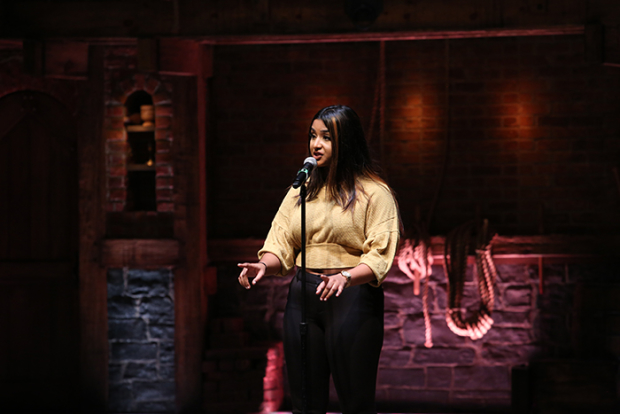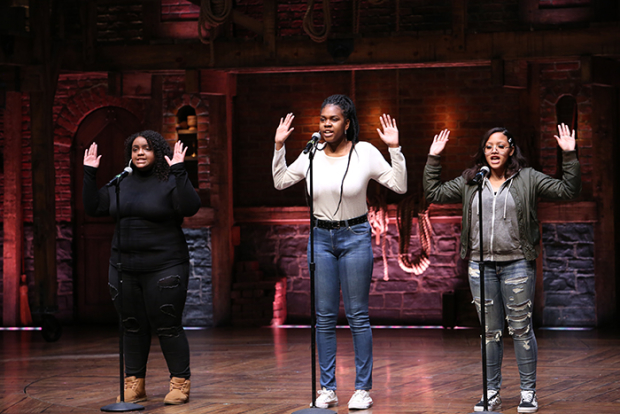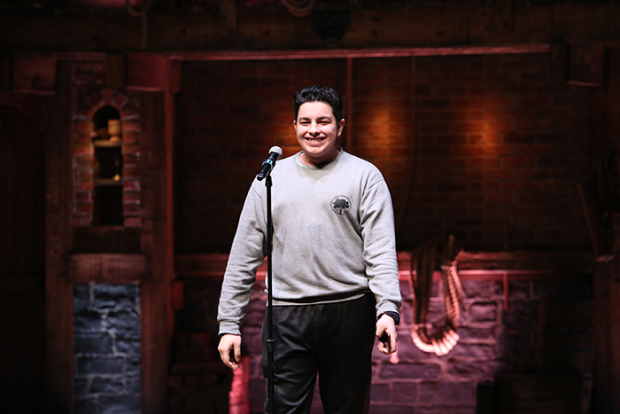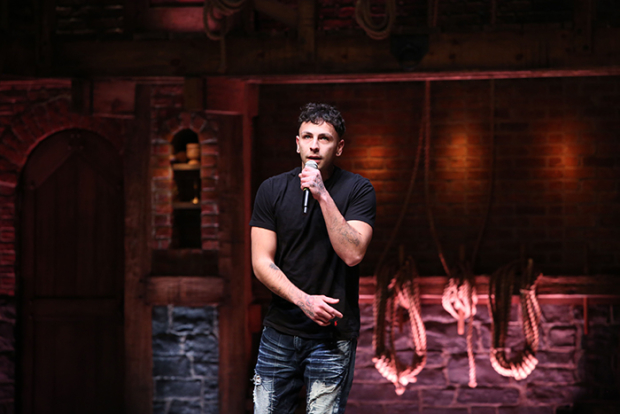3 Seeds the Hamilton Education Program Is Planting in the Minds of American Teens
I relived my teen years during a day at EduHam — and here’s what I witnessed.

(© Walter McBride)
"What is a legacy? It's planting seeds in a garden you never get to see." Lin-Manuel Miranda wove those lines into Alexander Hamilton's parting monologue — the one he delivers while bracing for death at the wrong end of Aaron Burr's pistol. But Miranda seems to have adopted that nugget of wisdom as his own personal battle cry. The 11-time Tony-winning, national-touring musical phenomenon Hamilton has already seen a substantial harvest — starting with its $2 million-plus weekly gross on Broadway . But an even richer haul is years, if not decades, away thanks to the Hamilton Education Program.
If this is your first time hearing about it, the Hamilton Education Program (nicknamed EduHam) is a partnership of Hamilton, the Gilder Lehrman Institute of American History, the Rockefeller Foundation, and the NYC Department of Education. Students from Title 1-eligible high schools take on an additional curriculum about Alexander Hamilton and the founding of America, and around a dozen times a year, those students pack into the Richard Rodgers Theatre (and now Hamilton's many regional houses as well) for a Q&A with Hamilton cast members and a matinee of the most coveted, and often most expensive show in the country. The highlight of the day, however, comes before the show, when a handful of students take the stage to perform their own songs, raps, and scenes inspired by the historical period they've been studying — usually after besting dozens of their classmates for the opportunity but receiving eardrum-shattering cheers from them nonetheless.
It's easy to idealize a day like this as one capable of prompting an instantaneous and complete commitment to a life in either art or academia — or at the very least an unabashed reverence for both. But spending an entire day in the EduHam trenches (also known as the audience of the Richard Rodgers) is itself an important lesson in recognizing the fact that even a program as robust and immersive as this one, is just a blip within the total immersion that is life as a teenager. And as teenagers surrounded by other teenagers (the most complex political structure known), you can't be too surprised when they have a stronger vocal reaction to the first kiss between Eliza and Alexander than Angelica's promise to "include women in the sequel" of the Declaration of Independence — or when a few unpleasant comments spill out of some boys' mouths when Maria Reynolds takes the stage for her salacious portion of the story. It's more productive to think of EduHam as a program designed to plant seeds than as one created to work miracles. So here are a few of the most nourishing kernels I got to witness take root.

(© Walter McBride)
1. Creating Debaters, Not Demagogues
EduHam students are approaching voting age during a time in America when sweeping, dubious claims can win national political debates. A long-term exercise in gathering information via primary sources, intelligently challenging the institutions outlined in those primary sources, and presenting those conclusions calmly and creatively is the perfect antidote. It's highly likely that many of these students started and ended their projects with the same deeply personal and/or inherited perspectives on institutionalized racism, a theme that was reflected in a large percentage of their presentations. But now they can go step by step through the Bill of Rights and point out the specific paradoxes in American society. That kind of knowledge is powerful.

(© Walter McBride)
2. Tearing Down the Imaginary Wall
Q&As with actors inevitably turn into conversations about how those actors became actors, or what made them want to be on Broadway, and EduHam was no exception — only the conversation felt unusually productive. If there were future performers, writers, or artists of any kind in the student audience, they had the chance to hear some familiar narratives from the actors onstage. Texas native Elizabeth Judd Salinas (Hamilton's current female standby) told her story of coming to the Richard Rodgers Theatre a decade ago to see In the Heights, finally seeing a place for herself on Broadway, but feeling like the stage was a lightyear away from her seat in the crowd. Seeing someone who looks like you perform in Hamilton is one thing. It's quite another to hear that person who looks like you tell you directly that a lightyear away is closer than you think.

(© Walter McBride)
3. Hamilton Is the Beginning, Not the End
My day of EduHam got a surprise appearance by Lin-Manuel Miranda, who had just gotten off a plane from Detroit and sauntered onstage in the middle of the Q&A with a folding chair (I don't think the other actors were upset about being upstaged, but no unshattered glass stood a chance against the screams from the audience). He told the story of how he picked up Ron Chernow's Hamilton biography during his post-In the Heights Mexican vacation, found the hip-hop spirit in Alexander's journey from St. Croix to the top of American politics, and wrote as much of that story as he could reasonably rhyme and fit into two-and-a-half-hours. It is not, he explicitly stated, an accurate history of Hamilton's life. It is a "starting point." That's a remarkable concept for teenagers, or anyone for that matter, to process. All information should be a starting point. Real learning is not single-directional, as it was when we all had to shove the Constitution preamble into our tiny brains with School House Rock. It's a launchpad to question, to explore, to challenge, and to eventually learn those all-important things about the world that aren't in textbooks.
#Repost @Gilder_Lehrman: “Words of encouragement and empowerment for Wednesday's #EduHam students from Lin_Manuel.” pic.twitter.com/EumFvfhbBz
— Hamilton (@HamiltonMusical) March 23, 2019








